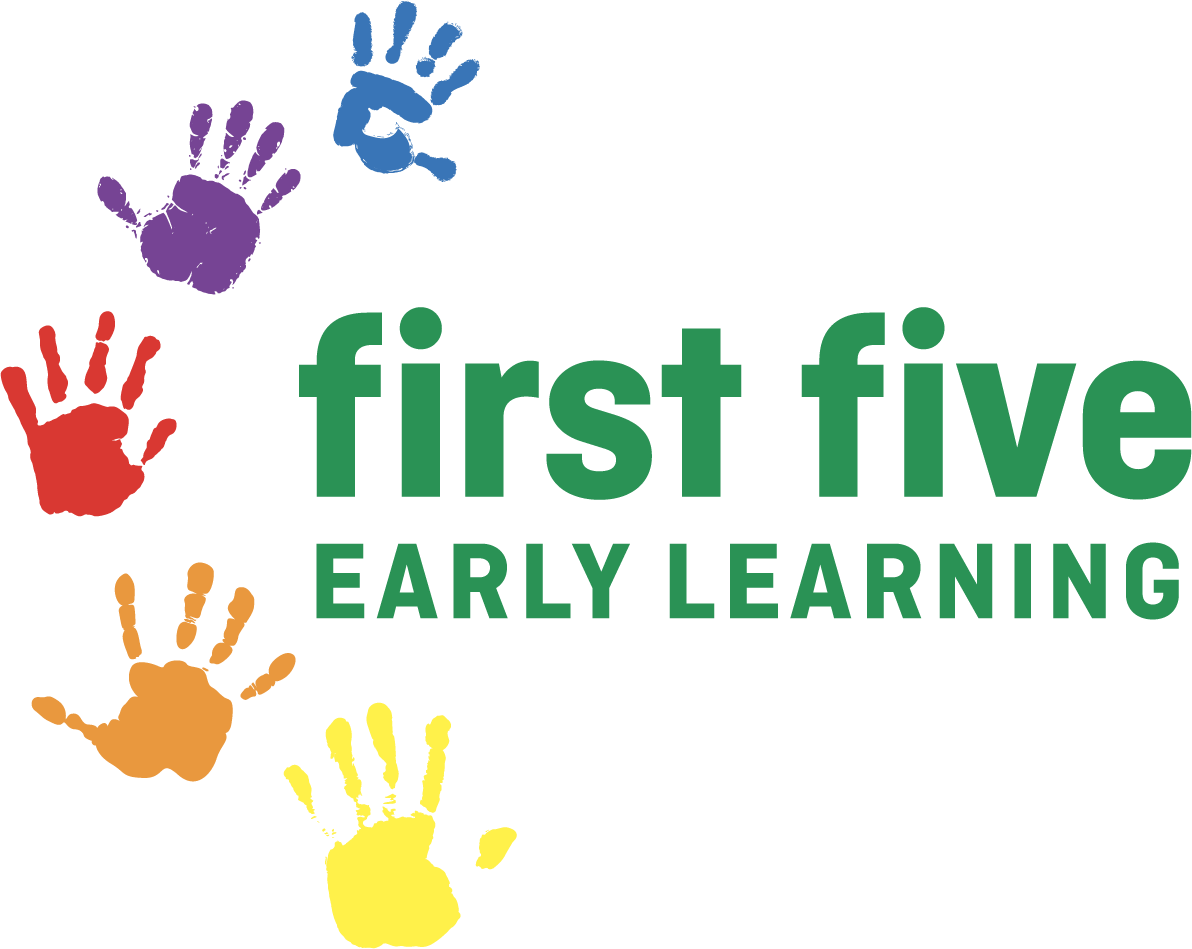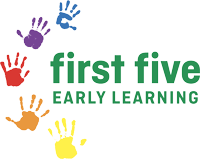The National Quality Standard is the framework against which our centres are assessed and rated on the quality of our programs and service delivery. Our commitment to each of the Guiding Principles of the National Quality Framework is outlined below.
The Rights and Best Interests of the Child are Paramount
In line with the United Nations Convention on the Rights of the Child and the Convention on the Rights of Persons with Disabilities, First Five Early Learning is a Child Safe Organisation, with zero tolerance to all forms of child abuse and harm. The safety and wellbeing of children is our priority, and we expect all team members to uphold this commitment. As a Child Safe Organisation, we recognise that action and a culture of safety and wellbeing are necessary to ensure children’s safety and prevent harm. Civics and citizenship are underpinned by our view of children as active community members, who contribute to the social fabric of local and regional communities. From infancy, a rights-based approach to curriculum assures every child dignity and optimal development.

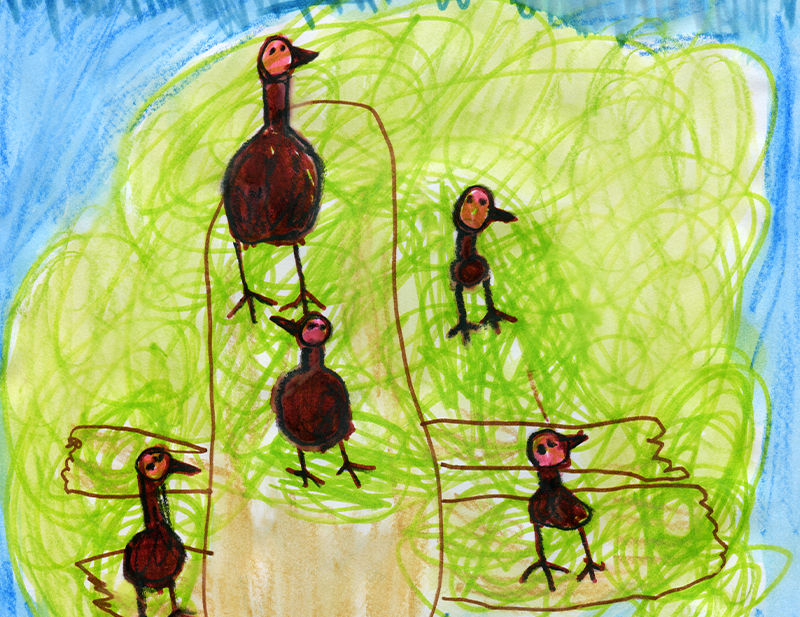
Children Are Successful, Competent and Capable Learners
At First Five Early Learning, our image of children as competent and capable learners drives our curriculum approach and the design of learning environments. We foster children’s natural propensity to learn through play and discovery and respond to children’s ideas, interests, play schemas and developmental capabilities. Contemporary early childhood education research and evidence-based practice informs high-quality approaches to teaching and learning which foster positive dispositions towards being a successful learner. We demonstrate respect for the multiple ways children represent their ideas and share their learning, and slow down in our work with children to hear their voices and respect their thinking.
Equity, Inclusion and Diversity Underpin the Framework
First Five Early Learning recognises that contemporary notions of inclusion encompass broad categories of diversity which take into account differences such as cultural, linguistic, spiritual and religious, gender and sexuality, physical and mobility. Diversity is recognised as a resource that enriches centre life, with all children being supported to access and participate fully in the daily program. To ensure equity, barriers to inclusion (environmental constrains, theoretical barriers, attitudes, and limited knowledge and skills) require re-thinking, with explicit training, support and action necessary to address limitations. At First Five Early Learning, we work in partnership with families, community, cultural leaders, inclusion support agencies, allied health professionals and organisations who uphold a rights-based approach to inclusion for all children and families.
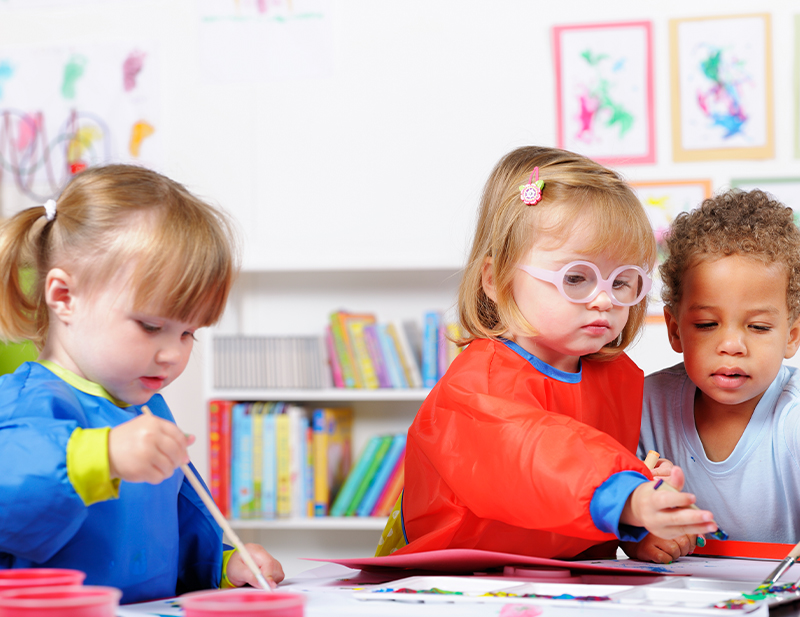

Australia’s Aboriginal and Torres Strait Islander Cultures are Valued
The relationship of Aboriginal and Torres Strait Islander peoples to the lands and territories now known as Australia is unique and enduring. First Five Early Learning commits to respecting and responding to the histories, cultures and languages of Aboriginal and Torres Strait Islander peoples. Embedding practices occur at a curriculum, operational and community outreach level, ensuring culturally responsive pedagogy and practice, culturally secure operational procedures, and respectful and reciprocal relationships with families and community. Ensuring team members develop a critical sense of self and understanding about their positioning in Australian society is central to all embedding practices to promote an anti-bias and anti-racist approach to service delivery, and integrity across embedding practices. Children are supported to engage in discussions and experiences which encompass learning around diversity, difference, race and representation to build their racial literacy. Representations of Aboriginal and Torres Strait Islander peoples are inclusive of rural, urban, regional, traditional and contemporary identities and ways of being. All children in Australia have a right and a responsibility to learn about and through Aboriginal and Torres Strait Islander histories, cultures, languages and pedagogies.
The Role of Parents and Families is Respected and Supported
Children arrive at First Five Early Learning centres with strong identities as members of families and communities. We recognise family and community as children’s first and most influential teachers and join with them to establish a secure foundation for children’s health and wellbeing and learning and development in the formative years. Partnerships with families can be complex, sometimes requiring a ‘third space’ in which to locate and respond to the values, beliefs and practices of caring and educating for young children from multiple perspectives. We view families and community as co-constructors of curriculum, with opportunities for learning, resources and centre environments reflecting children’s lived experiences. Within local communities across Australia, families represent diverse cultural and linguistic backgrounds. We recognise culture and language as a protective factor for young children; both of which provide purpose, resilience and pride.
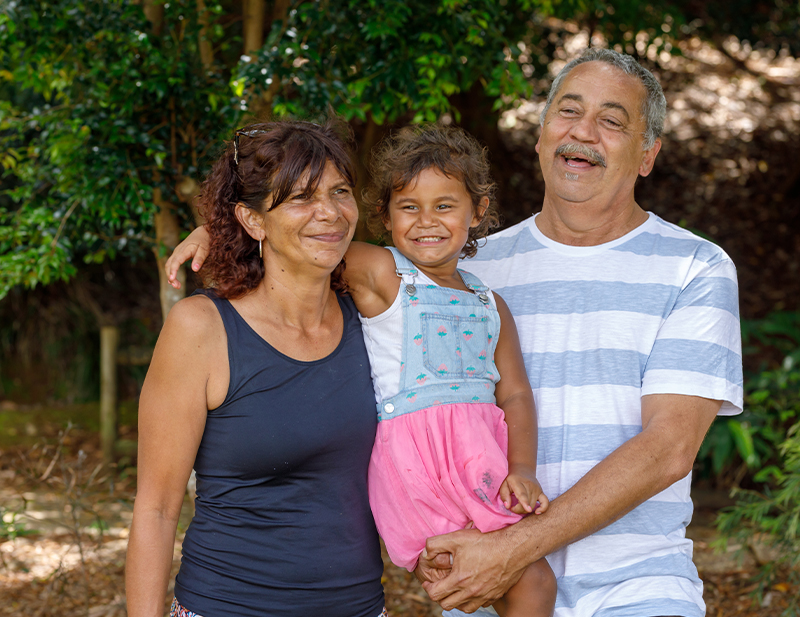

Best Practice is Expected in the Provision of Education and Care Services
In First Five Early Learning centres, a commitment to continuous practice improvement is achieved through methodologies which invite critical reflection, including action research, communities of practice, and teacher-as-researcher projects. We recognise that best practice reflects the context in which a centre is located, with fundamental elements of high-quality education and care core to all centre programs. Continuous practice improvement belongs to every team member, with time, space and opportunities for ongoing professional learning regardless of role and tenure. Content and pedagogy knowledge is consistently reviewed in line with new research findings and evidence-based practice. In each First Five Early Learning context, definitions of best practice are developed in partnership with children, families and community.

